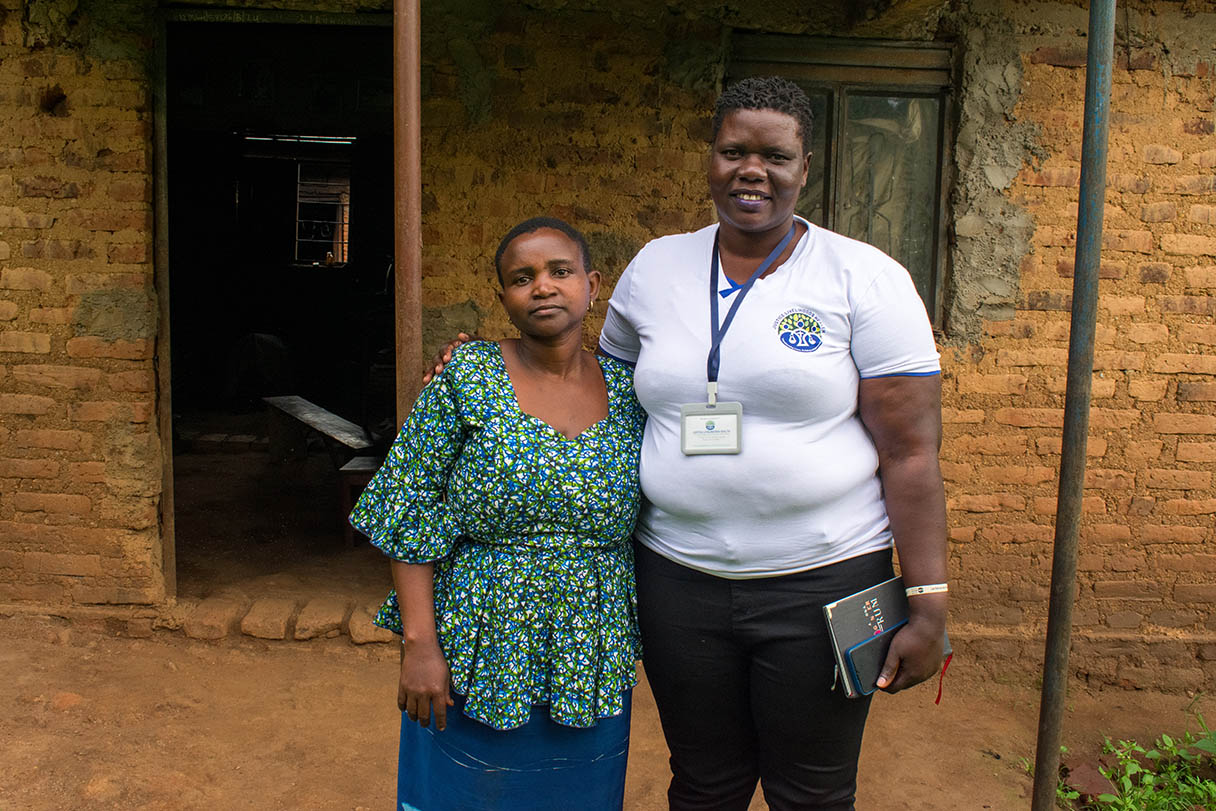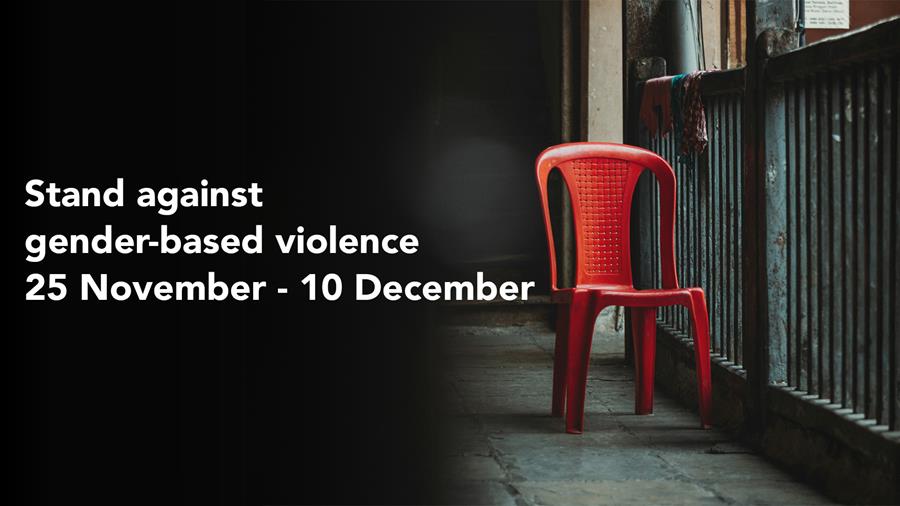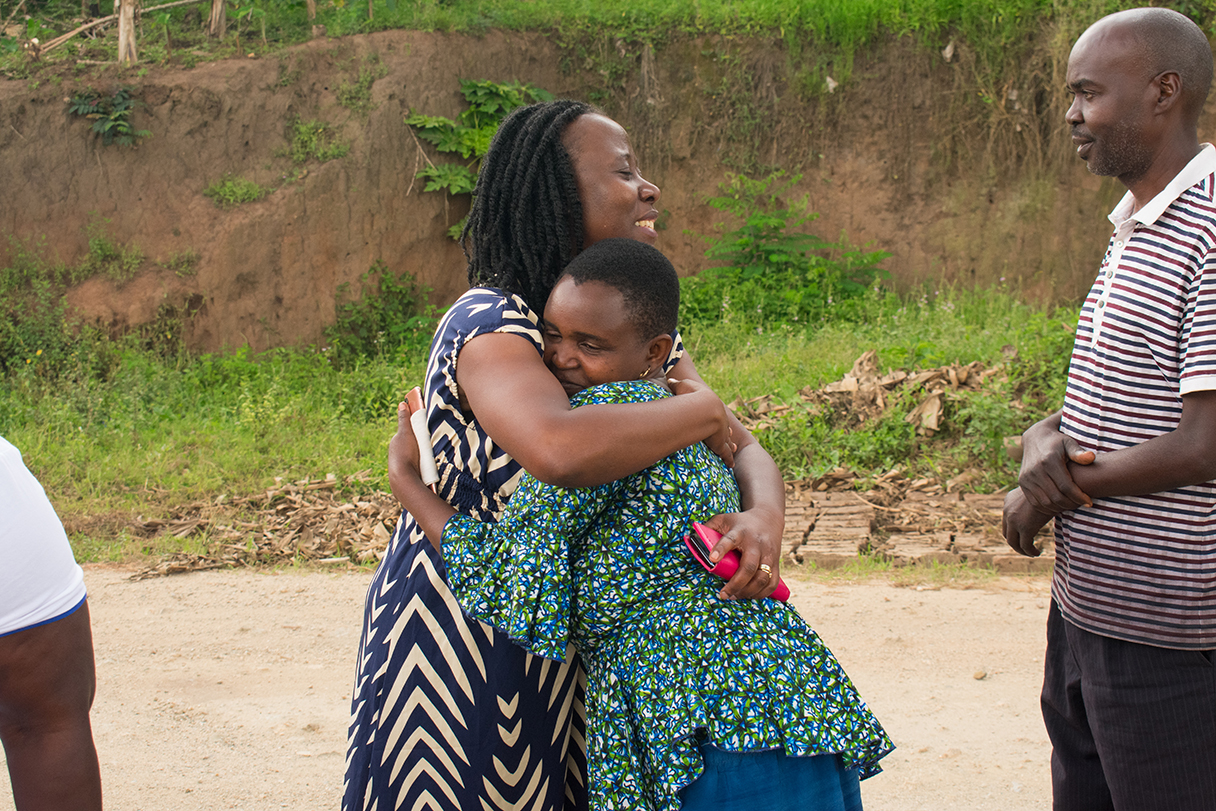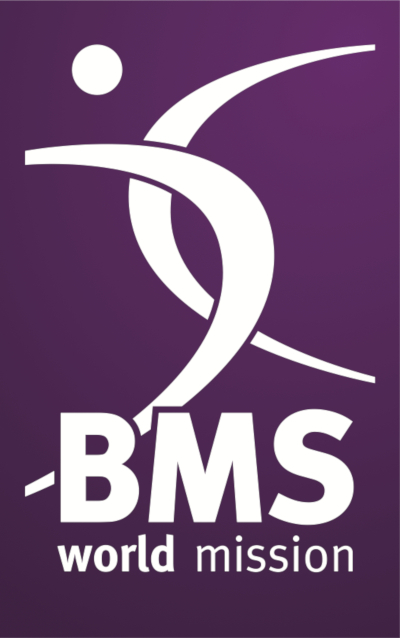
“I am a survivor”
You first met Gertrice on International Women’s Day, when we asked supporters to remember her, and women like her, who have experienced gender-based violence. Today, Gertrice calls herself by another name, one that takes back control of the narrative and reflects the next steps in her powerful story.
“Don’t call me Gertrice. My name is Biira.”
When we last introduced you to Biira, a Ugandan mother of three from Kyondo subcounty, Uganda, she was known by her first name, Gertrice. [Read the earlier story here]
Gertrice Biira Ithunga deserved to be known for the things she had: a well-kept home that reflected her modest means, her happy marriage to a local teacher, and her three much-loved sons.

But at the age of 39, all of that changed for Gertrice. Her husband of 20 years persuaded her to take out a loan of two million Ugandan shillings (around £434) and then abandoned her, taking the money and starting a new family elsewhere.
Suddenly, instead of being known for her values, her attributes and the things she contributed to her community, Gertrice became known for what had been taken from her.
Gertrice experienced verbal name-calling and social isolation. “I was called by labels that spoke of loss – “divorced,” “abandoned,” “shamed,” she explains. “But I did not choose betrayal. I did not choose rejection.”
25 November marks the start of 16 Days of Activism against Gender-Based Violence, an annual international campaign that BMS World Mission supports each year. The campaign is a rallying call against all forms of violence against women and girls, with this year’s theme being an end to digital violence.

Gertrice’s story may not seem to relate to the online abuse so many of us scroll past on our social media. And yet the social shame, name-calling and blaming of women is a theme that speaks directly into Gertrice’s experience, and that of all too many women around the world.
Left with her husband’s debt, Gertrice struggled to repay it, selling household items and obtaining food for their children on credit.
The loan doubled to over 4.4 million shillings, and with food becoming scarce, her children dropped out of school. Her youngest son was diagnosed with a liver condition, requiring costly monthly hospital visits.
Then, adding to the emotional and social pain, Gertrice’s husband began physically threatening her, demanding she leave their matrimonial home of 20 years. Creditors harassed her, and Gertrice remembers resorting to hiding in the bush at night to protect herself and her children. Even close neighbours closed their doors, and Gertrice was excluded from social events.
Her name, once a symbol of dignity, became a source of mockery. In despair, Gertrice turned to a Probation Officer from Kasese District, who requested support from longstanding BMS partner Justice Livelihoods Health (JLH).
When Jackline, the Gender Officer at JLH, met Gertrice, the first thing she did was listen. Next came aid packages of desperately needed food and clothes for the children, and Jackline also shared the hope of Jesus.

Jackline advocated for Gertrice’s eldest son to sit his Primary Leaving Exams and began praying with her regularly. She also referred Gertrice’s case to the Staff Advocate at the Uganda Christian Lawyers’ Fraternity (UCLF, a longstanding historic partner of BMS) to pursue a maintenance claim against her ex-husband, seeking financial support for their children.
During a visit, Gertrice held her wedding photo and wept, asking, “Why did my husband leave me? We made a vow before God.” When asked if she believed in God, she replied, “Of course I do. But my situation hasn’t changed. Can God still look at me?”
BMS Gender Justice Co-ordinator, Annet Ttendo-Miller, remembers praying with her and promising to walk alongside Gertrice: “That day, Biira felt truly seen, not as a victim, but as a woman of strength and dignity.”
Today, Gertrice prefers to be known as Biira. “It’s a name given to the second-born daughter among the Bakonzo of Kasese, Uganda. It carries heritage, strength and belonging,” she explains.
Her story has broken the silence in Kasese, and she raises awareness and inspires change as a domestic violence activist. Her powerful testimony was heard in public at the launch of the district’s first domestic violence shelter, run by JLH, UCLF and the Kasese Local Government.
Biira is no longer known for the things that were taken from her, but for the gifts, skills and experience she brings.
BMS partner JLH continues to train cultural and religious leaders to respond to gender-based violence. And considering the help she’d received, Biira found herself asking partner workers like Jackline, “What can I do now?” Annet Ttendo-Miller remembers answering, “Go and do likewise. When you find someone hurting, lift them up.”
Annet believes strongly that we can all ‘go and do likewise’, that we can all be our sister’s keeper, especially during the 16 Days of Activism campaign. She’s created a special prayer download, with one prayer for each of the 16 Days. Why not download it, allow it to spark reflection, and let her prayer points guide you through the campaign?
Today, Gertrice Biira Ithunga lives in freedom. Her debts are cleared, her home is secure, and she has full custody of her children. Her name, Ithunga – meaning “protector and possessor of wealth”, now reflects her reality. She is financially independent, socially reinstated, and publicly recognised. At the domestic violence launch in Kasese, she stood tall and declared, “My name is Gertrice Biira Ithunga, and I am a survivor.”
Author: Hannah Watson
Published: 20/11/2025
How can I pray for this?
We've created a printable prayer sheet with 16 prayer requests, one for each day of the 16 Days of Activism campaign. With a moving introduction from BMS Gender Justice Co-ordinator, Annet Ttendo-Miller, and short summary of Biira’s powerful story, it’s perfect for personal quiet times, or as a resource to be shared in fellowship groups and prayer meetings. Download it for free today and join the 16 Days campaign.







